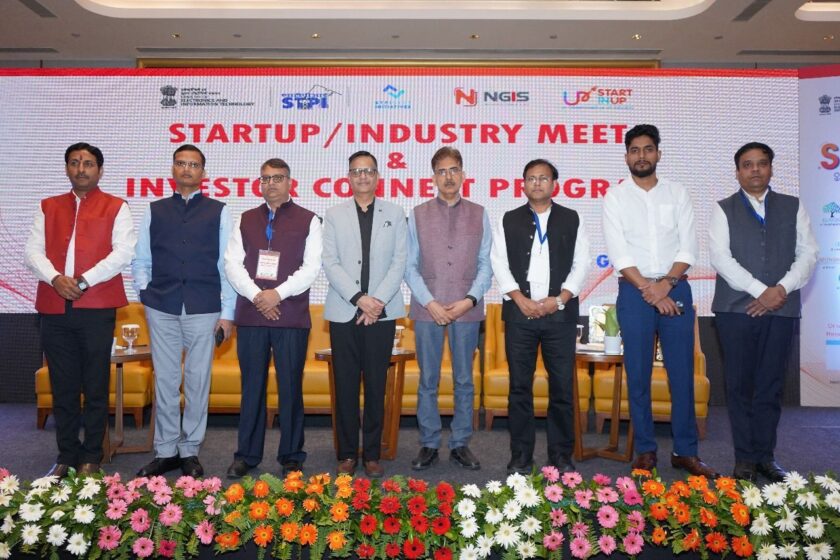Lucknow: Biotechnology is advancing rapidly, with new concepts emerging that have the potential to revolutionize various industries, including healthcare, agriculture, and environmental science. Here are some of the key emerging concepts in biotechnology:
1. CRISPR and Gene Editing:
- CRISPR-Cas9 technology has revolutionized gene editing, allowing scientists to make precise changes to DNA sequences. This technology holds promise for curing genetic diseases, improving crop resilience, and even creating genetically modified organisms (GMOs) with enhanced traits.
- Emerging developments in CRISPR include base editing and prime editing, which are more precise forms of gene editing, reducing unintended changes to DNA and increasing the technology’s safety and efficiency.
2. Synthetic Biology:
- Synthetic biology is the design and construction of new biological entities or the redesign of existing biological systems. This concept involves using DNA as a programming language to create synthetic organisms that can perform specific functions, such as producing biofuels, creating new pharmaceuticals, or even cleaning up pollutants.
- The potential of synthetic biology is vast, and it is being used to engineer microorganisms to produce valuable substances like antibiotics, proteins, and biodegradable plastics.
3. Organoids and 3D Bioprinting:
- Organoids are miniature, simplified versions of human organs grown from stem cells. These 3D cell cultures are being used to study human development, model diseases, and test new drugs in ways that were previously impossible.
- 3D bioprinting uses bio-inks made from living cells to create tissues and organs. Though creating fully functional organs for transplants is still in its early stages, 3D bioprinting is already being used for tissue repair, skin grafts, and cartilage engineering.
4. Gene Therapy and Personalized Medicine:
- Gene therapy involves modifying or replacing faulty genes to treat or prevent diseases. It holds potential for treating genetic disorders, such as cystic fibrosis, muscular dystrophy, and certain types of cancer.
- Personalized medicine is another rapidly emerging field, where treatments are tailored to an individual’s genetic makeup, lifestyle, and environment. Advances in genomics and biotechnology are enabling more precise and effective therapies for patients.
5. Microbiome Engineering:
- The human microbiome—the collection of trillions of microorganisms living in and on our bodies—is now recognized as crucial to our health. Emerging biotechnology is focusing on manipulating the microbiome to treat conditions such as obesity, diabetes, and inflammatory diseases.
- Probiotics, prebiotics, and engineered bacteria are being developed to improve gut health, immune function, and even mental health through the gut-brain axis.
6. mRNA Technology:
- The success of mRNA vaccines during the COVID-19 pandemic has opened up new possibilities for this technology. mRNA can be used not only for vaccines but also for treating cancer, genetic diseases, and viral infections.
- Researchers are working on cancer vaccines based on mRNA technology, which could train the immune system to recognize and attack cancer cells in the same way it targets viruses.
7. Cell and Gene Therapies for Regenerative Medicine:
- Regenerative medicine focuses on repairing or replacing damaged tissues and organs through biotechnology. Stem cell therapies are already being used to treat conditions such as leukemia, and ongoing research aims to expand their use in heart disease, diabetes, and neurodegenerative disorders.
- Induced pluripotent stem cells (iPSCs), which can be created from a patient’s own cells, are being used to develop personalized therapies and reduce the risk of immune rejection.
8. Agricultural Biotechnology and Gene-Edited Crops:
- Biotechnology is playing a critical role in agriculture, with the development of gene-edited crops that are more resistant to pests, diseases, and environmental stress. Unlike traditional GMOs, gene-edited crops are created using precise editing tools like CRISPR, which do not involve inserting foreign genes.
- These crops can help address food security challenges by improving yields, reducing the need for chemical inputs, and enabling crops to grow in harsher conditions.
9. Bioplastics and Biomanufacturing:
- Bioplastics are an emerging field where biodegradable materials are produced from biological substances rather than fossil fuels. These bioplastics can reduce environmental pollution and dependence on petroleum-based plastics.
- Biomanufacturing is the use of biological systems to produce chemicals, materials, and energy. Advances in biotechnology are enabling the development of bio-based chemicals, pharmaceuticals, and even biofuels, making production more sustainable.
10. AI and Biotechnology Integration:
- The integration of artificial intelligence (AI) with biotechnology is driving innovation in drug discovery, diagnostics, and personalized medicine. AI can analyze vast datasets from genomic research, enabling faster identification of potential drug candidates or genetic markers for diseases.
- AI algorithms are also being used to optimize bioprocesses, such as protein folding and molecular design, accelerating the development of new biotechnological products.
11. Biosensors and Wearable Biotechnology:
- Biosensors are devices that detect biological molecules, and they are becoming more sophisticated with the help of biotechnology. Wearable biosensors are being developed to monitor health conditions in real-time, such as glucose levels, heart rate, and other vital signs.
- This technology enables continuous health monitoring, which is particularly useful for managing chronic diseases like diabetes, and it provides valuable data for early diagnosis and treatment.
12. Environmental Biotechnology:
- Bioremediation uses biotechnology to clean up environmental contaminants. Genetically engineered bacteria and plants are being developed to degrade pollutants such as oil spills, heavy metals, and plastics, offering sustainable solutions for environmental restoration.
- Biotechnology is also being employed to reduce greenhouse gas emissions through bioenergy production and carbon sequestration techniques.
In conclusion, the biotechnology landscape is expanding rapidly, with groundbreaking concepts in gene editing, synthetic biology, regenerative medicine, and environmental applications. These emerging innovations have the potential to reshape industries and address global challenges in health, agriculture, and sustainability.

---------------------------------------------------------------------------------------------------















